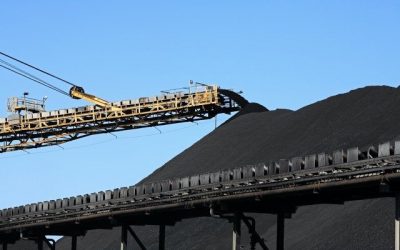Turning Screws: China’s Australian Coal Ban

Overly reliant economies are dangerously fragile things. As it takes two parties, often more, to play the game, the absence of interest, or its withdrawal by one, can spell doom. The Australian economy has been talked up – by Australian economists and those more inclined to look at policy through the wrong end of a drain pipe – as becoming more diverse and capable of withstanding shock. In truth, it remains a commodity driven entity, vulnerable to the shocks of demand. Think Australia, think of looting the earth.
Such carefree, plundering optimism lays bare the jarring fact that Australia remains obsessively and maddeningly committed to King Coal. To coal, she pays tribute, runs errands and sponsors with conviction. And it is coal that keeps the country tied to hungry markets which, for the moment, see use for it. But such hunger is not indefinite. India and China, traditional destinations for Australia’s less than innovative dig it and export it approach, have made it clear that their lust for coal is temporary. The appetite is diminishing, despite occasional spikes. Renewables are peeking over the horizon, forming the briefing documents of energy and trade departments.
To this comes another problem. Australia has been rather bullish of late towards the country that receives most of its earthly treasures. The People’s Republic of China has made it clear that it does not agree with the ambitiously aggressive line Canberra has taken on a range of fronts. There is the issue of blocking Chinese influence in the Pacific, notably through the provision of alternative cyber infrastructure whilst excluding Huawei in bids to secure 5G telecommunications contracts. There has been a campaign to combat purported Chinese influence on university campuses and claims of meddling in the political process. (Meddling by the US, by way of contrast, remains gloriously free to continue.)
All of these acts have shown Beijing less Australia’s independence and sovereign will than its unqualified, traditional commitment to the United States, for which it remains undisputed, kowtowing deputy. What Washington dictates, Canberra disposes.
Which bring us to Australia’s lingering weakness. According to Reuters, customs officers of the Dalian Port Group have stopped Australian coal imports, specifically coking coal central to steel making, and announced a plan to cap imports at $A12 million tonnes a year. This comes after the noticeable increase in delays at Chinese ports handling both coking and thermal coal over the course of last year. So far, Australia’s coal problem seems confined to the northern port.
The anti-panic campaign is already in full swing, which might also be read as an alternate universe in motion. Prime Minister Scott Morrison insists that “people should be careful about leaping to conclusions about this.” Local ports make decisions on local matters; no reason, then, to break into a sweat. Treasurer Josh Frydenberg feels there is really nothing to see here. “Our exports with China will continue to be strong as they have been in the past.” Trade Minister Simon Birmingham has said, banally enough, that China was “a valued partner of Australia and we trust that our free trade agreement commitments to each other will continue to be honoured.” Hiccups have previously happened in the relationship (“occasional interruptions to the smooth flow”), but this was nothing compared to the common goal: exporting and using more coal.
Reserve Bank governor Philip Lowe prefers to focus on the amount of coal being stopped at Dalian as negligible and, in any case, transferrable. (The Dalian port receives some 1.8 percent of Australian coal exports.)
“The amount of coal that is being blocked is the equivalent of two months’ exports from Australia to China. It’s entire possible that if it cannot enter the Chinese market then it can go to other markets.”
The justification from the Chinese Foreign Ministry remains vague, pegged to the language of regulation and quality reassurance. Spokesman Geng Shuang relies heavily on the issue of compliance.
“China’s customs assesses the safety and quality of imported coal, analyses possible risks, and conducts corresponding examination and inspection compliant with laws and regulations.” In so doing, China “can better safeguard the legitimate rights and interests of Chinese importers and protect the environment.”
Geng was also in a playful mood. Did the reporter ask him on “coal” or “cow”? The issue is less amusing for Australian exporters, who have received special attention distinct from their Russian and Indonesian counterparts. This is despite the claim that there is a glut in coal, necessitating a temporary halt for domestic reasons.
The spokesman was also firm: China-Australia relations had not been impaired.
“As we have stressed many times before, a sound and stable China-Australia relationship serves the common interests of both countries and peoples.”
The subtext is hard to ignore: Canberra will need to be taught periodic lessons, bullied when necessary, and reminded about being too overzealous.
*
Note to readers: please click the share buttons below. Forward this article to your email lists. Crosspost on your blog site, internet forums. etc.
Dr. Binoy Kampmark was a Commonwealth Scholar at Selwyn College, Cambridge. He lectures at RMIT University, Melbourne. He is a frequent contributor to Global Research and Asia-Pacific Research. Email: [email protected]
Featured image is from Small Caps

